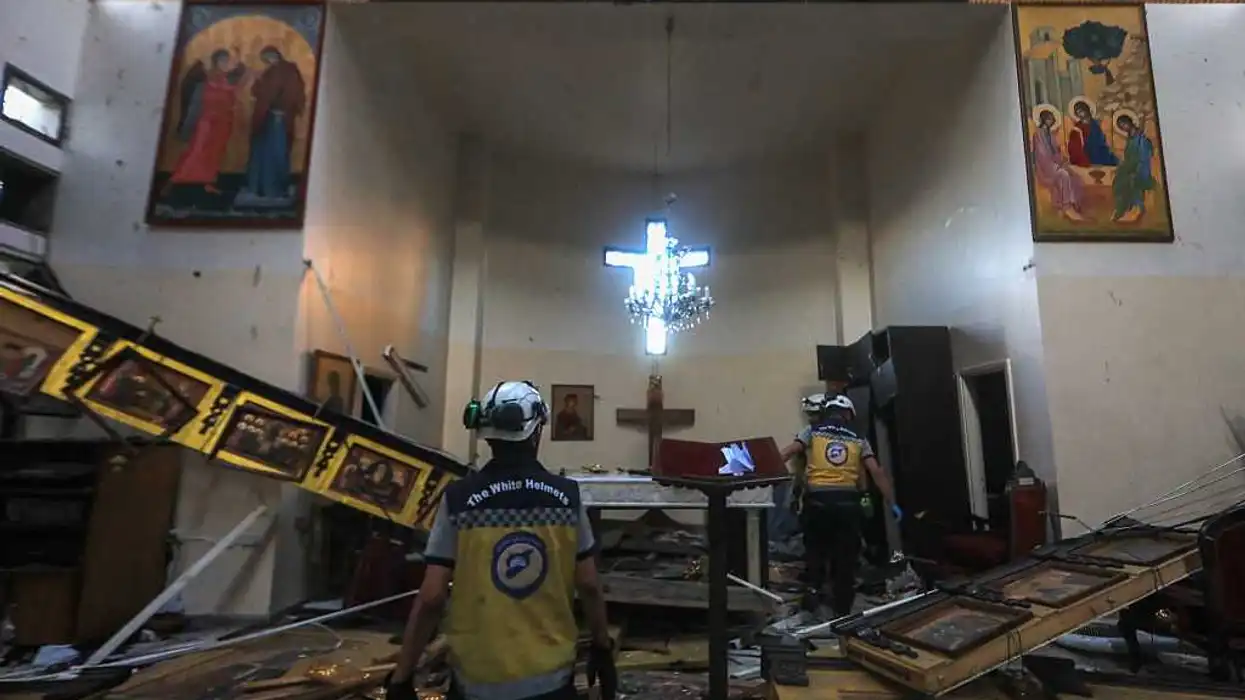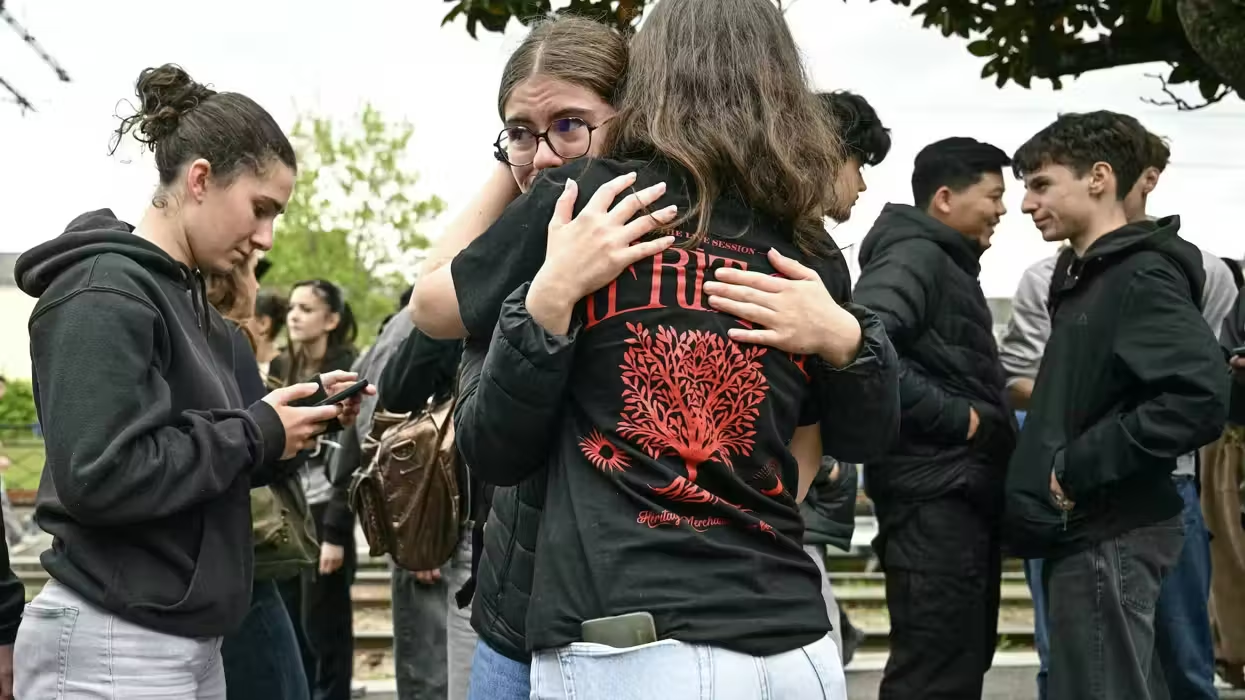
© 2025 Blaze Media LLC. All rights reserved.
Welcome back to the story of Puerto Rico. If you missed the opening chapter, you should consider starting here. If you are familiar with the story of Puerto Rico’s pillaged treasures, sunken economy, and never-ending piles of debt, then proceed. The adventure we are about to begin is a story that is familiar to many; it includes the Washington cronyism of Wall Street bailouts – and in this case, politicians too.
Puerto Rico is broke to the tune of $73 billion. In fact, Puerto Rico’s debt is equal to its annual economic output, and enough to consume one out of every three dollars in revenue over the next five years. As a result, Puerto Rican and Washington politicians are uttering a theme so unfortunately common in our nation’s capital: Bailout time, matey!
Corporate Cronyism
One thing should be clear: a Washington bailout is merely a transfer of capital from you – the taxpayer – to a failed and irresponsible entity. In this case, Washington is considering sending your tax dollars to the reckless politicians of Puerto Rico and their cronies on Wall Street: Puerto Rican politicians go unpunished for the profligate spending, and the Wall Street creditors are made whole on their risky bets.
This same bailout exercise took place in 2008, when Washington sent hundreds of billions of dollars to Wall Street banks. Unfortunately, a Puerto Rican bailout would be worse. A bailout would not only make the creditors on Wall Street whole again, but it would also prop up an irresponsible Puerto Rican legislature that bankrupted the island.
In 2008, the government bailed out the American International Group (AIG) by as much as $180 billion. According to Simon Johnson in his book, 13 Bankers: The Wall Street Takeover: “By committing $180 billion to keep AIG afloat, the government ensured that those counterparties would be paid in full for their winnings on the bets they had made with AIG.” Under pressure, AIG admitted to Congress that those who benefited the most from taxpayer-funded bailout money were: Goldman Sachs $12.9 billion, Merrill Lynch $6.8 billion, Bank of America $5.2 billion, and CITI $2.3 billion.
A bailout of Puerto Rico would be similar, where Wall Street’s bond mutual funds own roughly $11.3 billion of Puerto Rican debt, with another $15 billion held by hedge funds.
Moral Hazard
The bailouts of 2008 were instructive. They ignited the political base as a result of frustrations from the cronyism and unfairness, spurring grassroots movements like the Tea Party and Occupy Wall Street. Washington politicians want you to believe that the bailouts associated with Troubled Asset Relief Program (TARP) staved off another Great Depression, but the end result was most unfortunate. Banks weren’t punished; instead they grew bigger. The Federal Reserve, which failed as a financial regulator and the management of monetary policy, was granted even greater powers.
Sometimes failure (in this case, default) is the best outcome. Nassim Taleb, author of The Black Swan, once said to me, “When you remove failure as an option, you eliminate capitalism.” Failure, in other words, eliminates weaknesses and irresponsible behaviors. It corrects inefficiencies and makes the system stronger. When a system fails, reform is not a choice, it’s a necessity.
Puerto Rico is in full systems failure. It cannot choose to reform; it must. Author Brian McNicoll recently wrote in The Hill:
[Puerto Rico needs to resolve its debt] the old-fashioned way: by trimming government, cutting taxes, luring business and putting its people to work at reasonable wages.
But, perhaps no one says it better than National Review’s Kevin Williamson in his piece titled, “No Bailout for Puerto Rico:”
If we bail out Puerto Rico, we are going to end up bailing out every Democrat-run hellhole across the fruited plain and every grasping public-sector union promised pension benefits that look more like a lottery prize.
If we open the flood gates for Puerto Rico, how is America to then ignore the many other states facing fiscal issues? Illinois is on the brink of default; the state has unfunded liabilities of more than $100 billion; California’s pension system is broke too, by as much as $170 billion. In total, states are adding debt and short on funds to meet state obligation by nearly $1 trillion. For example, does anyone believe that Democratic Senator Richard Durbin of Illinois will help bailout Puerto Rico but not his own state That seems fairly unlikely; more likely it will set the Washington bailout machine in motion.
The moral hazard created by bailouts is dangerous. The government bailed out Chrysler in 1980 by $4 billion, only for the auto industry to need another bailout in 2008 of $25 billion. Wall Street was bailed out in 1984 (Continental Illinois National Bank and Trust Company, $4 billion) and 1989 (Savings and Loans institutions, $294 billion). Yet, less than 20 years later Washington needed to hand over a check to Wall Street for another $700 billion. Moral hazard eliminates the fear of risk, and responsible behavior – just as Wall Street has come to learn.
But imagine the dangers of a moral hazard created by bailing out sleazy politicians; imagine the promises those politicians will make to their constituents knowing Washington will bail them out when the time comes. This is particularly troubling psyche to instill into the minds of those who can squander the money of others, those who have the power to raise taxes and make laws. To save Puerto Rico, and all American states, we must allow the individual governments, and the citizens that make them up, to take responsibility in fixing their problems.
John Gray is a Senior Editor at Conservative Review. Follow him on Twitter @JohnW_Gray.
Want to leave a tip?
We answer to you. Help keep our content free of advertisers and big tech censorship by leaving a tip today.
Want to join the conversation?
Already a subscriber?
more stories
Sign up for the Blaze newsletter
By signing up, you agree to our Privacy Policy and Terms of Use, and agree to receive content that may sometimes include advertisements. You may opt out at any time.
Related Content
© 2025 Blaze Media LLC. All rights reserved.
Get the stories that matter most delivered directly to your inbox.
By signing up, you agree to our Privacy Policy and Terms of Use, and agree to receive content that may sometimes include advertisements. You may opt out at any time.






